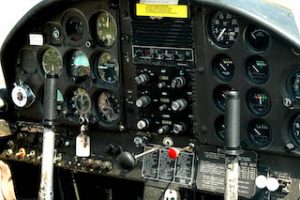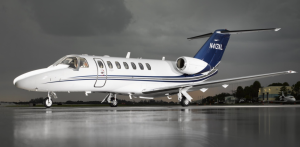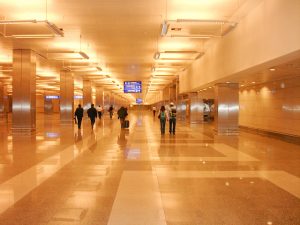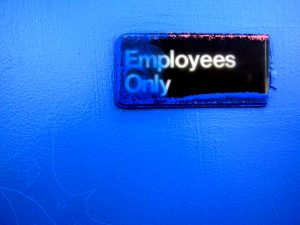10 Unique Features Of Flying Schools In Nairobi
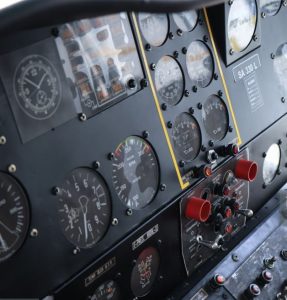 Nairobi, Kenya’s bustling capital, has emerged as a prominent hub for aviation training, attracting aspiring pilots from across the globe. The city’s flying schools offer a distinctive blend of features that set them apart from institutions elsewhere. This article explores the unique attributes of flying schools in Nairobi, highlighting what makes them stand out and why they are a top choice for pilot training.
Nairobi, Kenya’s bustling capital, has emerged as a prominent hub for aviation training, attracting aspiring pilots from across the globe. The city’s flying schools offer a distinctive blend of features that set them apart from institutions elsewhere. This article explores the unique attributes of flying schools in Nairobi, highlighting what makes them stand out and why they are a top choice for pilot training.
1) Strategic location and access
Nairobi’s geographical location as a major city in East Africa provides several strategic advantages for aviation training.
- Proximity to major airports: Nairobi is home to Jomo Kenyatta International Airport (NBO), one of Africa’s busiest and most well-equipped airports. This proximity allows flying schools in Nairobi to offer students hands-on experience in a major international airport environment. Students can gain valuable exposure to large-scale airport operations, air traffic control procedures, and diverse aircraft types.
- Central hub for East Africa: As a central hub for East Africa, Nairobi provides access to a wide range of regional flights and aviation opportunities. This strategic location allows students to experience a variety of airspace environments and operational contexts, which is crucial for developing well-rounded piloting skills.
2) Advanced training facilities
Flying schools in Nairobi Kenya are equipped with state-of-the-art facilities that enhance the learning experience for students.
- High-fidelity flight simulators: Nairobi’s flying schools, such as Laminar Sim and the East African School of Aviation (EASA), feature advanced flight simulators that replicate real-world flying conditions. These simulators offer high-fidelity experiences, including complex flight scenarios, emergency procedures, and multi-crew operations. The realistic simulation environment helps students prepare for actual flight situations and enhances their decision-making skills.
- Modern training aircraft: The city’s flying schools maintain fleets of modern training aircraft that are equipped with the latest avionics and safety features. Training on these advanced aircraft ensures that students are familiar with current industry standards and technologies. This exposure is vital for adapting to the evolving demands of the aviation industry.
- Interactive learning environments: Nairobi’s flying schools invest in interactive learning environments that support effective teaching. Classrooms are equipped with multimedia resources, simulation software, and virtual learning tools. These resources facilitate a deeper understanding of aviation concepts and procedures, complementing practical flight training.
3) Diverse training programs
Flying schools in Nairobi offer a wide range of training programs to cater to various career aspirations in aviation.
- Private Pilot License (PPL): The PPL program is designed for individuals seeking to become recreational or personal pilots. Nairobi’s flying schools provide comprehensive PPL training that covers fundamental flight skills, navigation, and aviation regulations. This program serves as the foundation for further advanced training.
- Commercial Pilot License (CPL): The CPL program prepares students for careers in commercial aviation, including flight operations for airlines and charter companies. Nairobi’s schools offer advanced training in flight manoeuvers, commercial operations, and flight planning, equipping students with the skills needed for professional flying careers.
- Airline Transport Pilot License (ATPL): For those aiming to become airline captains or senior pilots, the ATPL program offers specialised training. Nairobi’s flying schools, such as EASA, provide comprehensive ATPL courses that cover advanced flight techniques, multi-crew operations, and management of the airline.
- Specialised courses: In addition to standard licenses, Nairobi’s flying schools offer specialized courses such as Multi-Crew Cooperation (MCC), Aviation Professionalism Simulator (APS), and Jet Orientation Course (JOC). These courses are designed to prepare pilots for specific roles and aircraft types, enhancing their versatility and employability.
4) Experienced instructors
The quality of instruction is a critical factor in pilot training, and Nairobi’s flying schools are staffed with highly qualified and experienced instructors.
- Diverse expertise: Instructors in Nairobi come from diverse backgrounds, including airline pilots, flight instructors, and aviation managers. This diversity brings a wealth of knowledge and practical experience to the training environment. Students benefit from the instructors’ real-world insights and hands-on experience in various aviation context.
- Personalised instruction: Nairobi’s flying schools prioritise personalised instruction, with low instructor-to-student ratios that ensure individual attention. This personalised approach allows instructors to tailor their teaching methods to each student’s needs, helping them overcome challenges and achieve their goals.
5) Career support and opportunities
Flying schools in Nairobi offer robust career support and numerous opportunities for students to advance their aviation careers.
- Industry connections: Nairobi’s flying schools have established strong connections with airlines, aviation companies, and industry professionals. These connections facilitate job placement and internship opportunities, helping students transition smoothly into the aviation workforce.
- Job placement assistance: Many flying schools provide job placement assistance and career support services, including resume preparation, interview coaching, and networking opportunities. This support helps graduates secure employment and navigate the competitive job market.
- Internship and cadet programs: Some schools, like Laminar Sim, offer internship and cadet programs in collaboration with airlines. These programs provide students with practical experience and a direct pathway to employment with partnering airlines.
6) Cost-effectiveness
While the cost of pilot training can be high, Nairobi offers several cost advantages compared to other regions.
- Competitive tuition fees: Flying schools in Nairobi often have competitive tuition fees, making pilot training more affordable compared to institutions in other countries. This cost-effectiveness allows students to receive high-quality training without incurring excessive debt.
- Affordable living costs: Nairobi’s cost of living is relatively lower compared to major cities in Europe, North America, or Australia. This affordability extends to accommodation, transportation, and daily expenses, making it a cost-effective location for students pursuing pilot training.
7) Unique learning environments
Nairobi’s unique learning environments offer additional benefits for pilot training.
- Diverse weather conditions: Nairobi’s weather conditions, ranging from clear skies to occasional thunderstorms, provide valuable training experiences. Pilots-in-training can learn to handle different weather scenarios, enhancing their ability to operate safely and effectively in various conditions.
- Varied airspace: The city’s airspace includes a mix of controlled and uncontrolled environments, offering students exposure to different types of airspace management. This experience is essential for developing the skills needed to navigate complex airspace and interact with air traffic control.
8) Cultural and lifestyle benefits
Attending a flying school in Nairobi also offers several cultural and lifestyle benefits.
- Cultural exposure: Nairobi is a melting pot of cultures, with a rich history and diverse population. Students have the opportunity to experience different cultures, traditions, and cuisines, enriching their overall experience while studying in the city.
- Recreational activities: The city offers a wide range of recreational activities, including parks, museums, restaurants, and entertainment venues. Students can enjoy their downtime by exploring Nairobi’s attractions and participating in various leisure activities.
9) Supportive learning community
Nairobi’s flying schools foster a supportive learning community that enhances the overall training experience.
- Networking opportunities: The aviation community in Nairobi provides numerous networking opportunities, including industry events, seminars, and workshops. These events allow students to connect with aviation professionals, gain insights into industry trends, and build valuable relationships.
- Student support services: Flying schools in Nairobi offer a range of student support services, including academic advising, counselling, and extracurricular activities. These services contribute to a well-rounded training experience and help students succeed both academically and personally.
10) Future growth and opportunities
Nairobi’s aviation industry is poised for continued growth, creating future opportunities for pilots trained in the city.
- Expanding aviation sector: As Kenya’s aviation sector expands, the demand for skilled pilots is expected to increase. Students who complete their training in Nairobi will be well-positioned to take advantage of these growth opportunities.
- Emerging trends: Nairobi’s flying schools stay abreast of emerging trends and technologies in the aviation industry. This forward-looking approach ensures that students receive up-to-date training, preparing them for success in a rapidly evolving field.
Conclusion
Flying schools in Nairobi offer a range of unique features that make them an attractive choice for aspiring pilots. From advanced training facilities and experienced instructors to cost-effective education and career support, Nairobi’s aviation schools provide a comprehensive and enriching training experience. The city’s strategic location, diverse training environments, and supportive learning community further enhance the benefits of pilot training in Nairobi.
For those seeking a successful career in aviation, attending a flying school in Nairobi presents numerous advantages. By choosing to train in this vibrant city, students can take advantage of world-class facilities, expert instruction, and valuable career opportunities, positioning themselves for a successful future in the skies.


